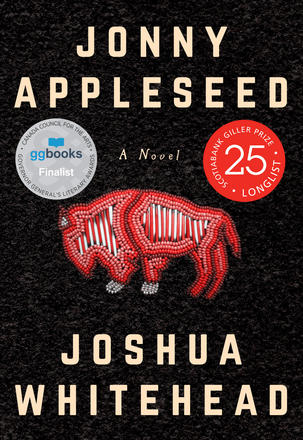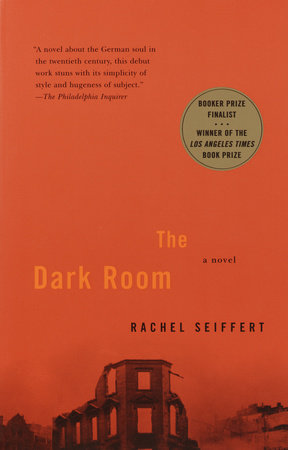“The past mishandles everybody,” Alani Baum declares in my novel Vanishing Monuments. The novel starts as they learn that their mother—who they haven’t seen in almost thirty years, when they ran away from home at seventeen—has lost her ability to speak due to her worsening dementia. This news spurs Alani into taking an impromptu trip home to Winnipeg, and as with all our homecomings, Alani finds themselves wading through the mire of their memories the city holds.
This isn’t a unique experience, being haunted by our personal history—especially emotionally intense times in our life, like our youth. I think most of us, in some ways, are always trying to climb over what has happened to us (and what we have done) in an attempt to exist in our present; in an attempt to pretend we are inside the life we are living, rather than constantly trying to surface from the life we have lived.
Here is a list of eight books where the characters—like Alani—are trying (and sometimes succeeding) to get over the past.

Beloved by Toni Morrison
It’s hard to talk about books where the past casts a shadow over the present without including Toni Morrison’s Beloved. From the first sentence—“124 was spiteful”—we know we’re in for a haunting. Set eighteen years after Sethe escaped to Ohio from a life of slavery on a farm called Sweet Home, Sethe is still living with the memory of what happened to her there. I don’t want to reveal too much about the book, but if you’ve somehow slept on Beloved, it’s high time to open the book and meet her.

the earthquake room by Davey Davis
One of my favorite novels of the last few years, the earthquake room is a story about k and bea, and the guilt k feels about cheating on bea after bea—in the first pages of the book—finds herself infected with a Herpes sore (yes, that’s what’s on the cover). Wracked with guilt and seeking punishment, k spirals into shocking, self-destructive behavior. the earthquake room is an intimate story about a relationship, but through that intimacy, and k’s inability to forgive themselves, the novel feels almost apocalyptic.

Jonny Appleseed by Joshua Whitehead
Winner of the Lambda Literary Award for Gay Fiction in 2019, Jonny Appleseed is an almost picaresque novel that slowly tells the story of Jonny—a Two-Spirit Indigiqueer sex worker currently living in Winnipeg. The plot of the novel is built around Jonny trying to find a way to get back to the rez, which is a few hours north of the city, to attend the funeral of his stepfather. As he tries to catch a ride, we are bombarded with stories of Jonny’s life, stories about his sexwork, about his kokum, about his growing up the only Two-Spirit kid on the rez. For as much pain and trauma there is in this book, particularly in Jonny’s complicatedly intimate relationship with his childhood friend Tias, there’s also so much love and beauty. Laugh and cry, Jonny’s perseverance is as infectious as the liveliness (and sexiness!) of his voice.

The Dark Room by Rachel Seiffert
Composed of three novellas, The Dark Room grapples with World War II from the perspective of three German civilians: Helmut (a photographer early on in the war in the 1930s), Lore (a twelve-year-old girl trying to escape the Russians to West Germany in 1945), and Micha (a teacher living in contemporary/late 90s Germany). In Micha’s novella, Micha is shocked to learn that his grandfather was a Nazi, and finds himself obsessed with learning the truth about what his grandfather’s role in the war was. Micha’s dark and relentless curiosity begins to create rifts in his family as he refuses to stop unearthing what they would prefer remain earthed. Reminiscent of Michael Verhoven’s film The Nasty Girl (1990), The Dark Room’s final novella does an excellent job of capturing the discomfort and trauma people experience in learning their proximity to both atrocities and their perpetrators.

Brother by David Chariandy
I’m mad at a lot of people for not reading Brother, so if you want to get in my good books, please read this good book. Set in Scarborough, a lower-class neighborhood in Toronto which is home to many immigrants, Brother follows Michael and his brother Francis, who live with their mother in a housing complex. The novel is framed in the contemporary moment, when Michael’s childhood love interest Aisha comes back to Scarborough to visit—some twenty years after Francis’ tragic and violent death. When Aisha returns, she finds that after all this time, Michael hasn’t done anything but work in a grocery store, and he and his now mostly-silent mother still live in the same apartment. Neither have been able to begin to get past the fact of Francis’s death. Brother is one of the most beautiful and infuriating novels (due to injustice) I’ve read in years.

Hum by Natalia Hero
This stunning short novel—published by scrappy Canadian publisher Metatron—tells the story of a young woman who survives a sexual assault, and who shortly after gives birth to a hummingbird. Yes, a hummingbird. From then on, the hummingbird (and the sound of its constant hum) is ever-present in her life, and for a long time irritates her as she tries to figure out what it wants. A touching allegory, Hum is about the jagged journey of healing as she learns to coexist with a trauma she will have to live with forever.

How Far We Go and How Fast by Nora Decter
This list wouldn’t be complete without one more book set in Winnipeg. Nora Decter’s How Far We Go and How Fast—which won the Rakuten-Kobo Award for Emerging Writers in 2019—tells the story of sixteen-year-old Jolene (named after the Dolly Parton song) in the aftermath of her older brother—and hero—Matt leaving home unannounced one night. As the book progresses, and while Jolene clashes with her drunk and karaoke-obsessed mother—all the while trying to save up money for a bus ticket to the west coast, where Matt went—we slowly learn more about Matt and what happened to him. I can’t think of a book that captures teenage angst as well as Decter does here, while also deftly illustrating the many effects of loss.

Indian Horse by Richard Wagamese
This book is one of the most beautiful and gutting books I’ve read in the last few years. On its surface, it seems to be a book about the beauty of hockey, and about how the game allowed Saul Indian Horse to survive the brutal realities of life in a residential school. But more than hockey, Indian Horse is about the ways in which the genocidal institutions that were the residential schools destroyed generations of Indigenous people in North America. The way Saul’s passionate and seemingly reachable ambition to become a professional hockey player is interrupted by the manifestations of his trauma is as heartbreaking story of colonial injustice as has ever been told.
The post 8 Novels About Being Haunted by the Past appeared first on Electric Literature.












